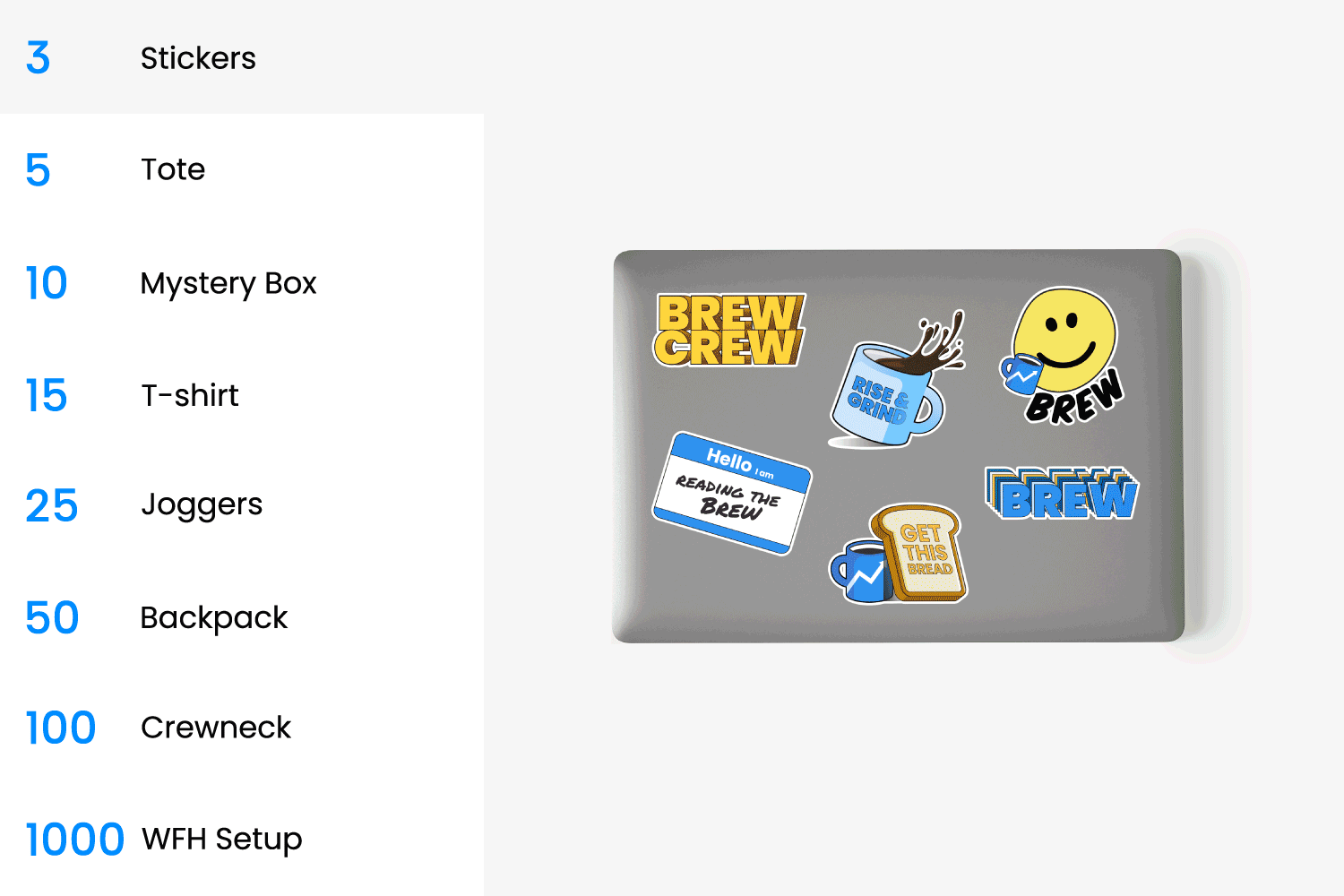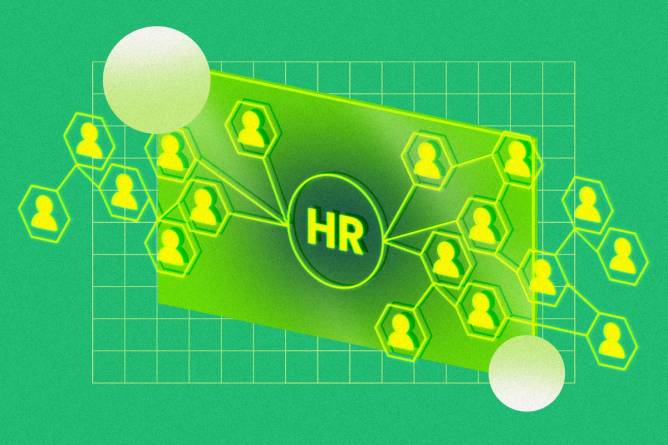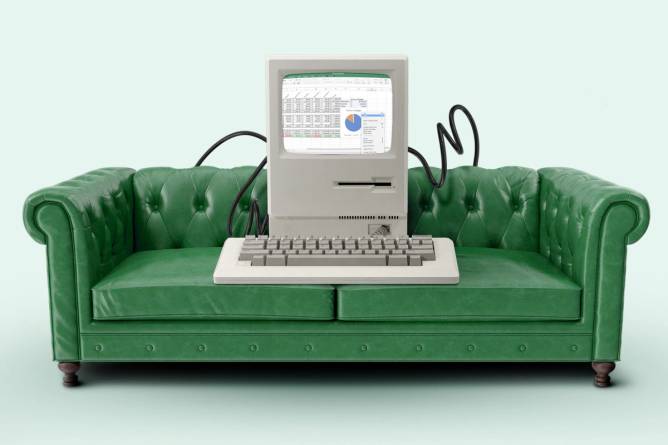Happy Friday! It’s performance review season, and if you’re stressed about employees’ compensation requests, just be glad you didn’t have to approve Elon Musk’s $56 billion pay package. Though the Tesla CEO’s compensation deal made it past his board of directors, it didn’t pass muster with a Delaware judge, who voided the plan this week.
In today’s edition:
 The more the merrier The more the merrier
 Technically HR Technically HR
 Book club Book club
—Courtney Vinopal, Adam DeRose, Mikaela Cohen
|
|
Citizens Financial
When Susan LaMonica started her career at JPMorgan in 1985, she didn’t expect to end up working in HR. The banking executive, who now serves as CHRO of Citizens Financial Group, spent years working in a variety of different operations, technology, and risk-management roles before she had an opportunity to take on an HR role.
It turned out that she loved it, and the stint turned into a decades-long career at JPMorgan running development, with a focus on “learning, leadership, diversity, culture, [and] organizational change.” During her last four years with the bank, she was promoted to HR business partner roles, and most recently served as a managing director and HR executive for its global markets and investment banking arm.
After leaving JPMorgan in 2006, LaMonica took a five-year career hiatus for personal reasons. She reentered the industry as the Americas HR director for Citizens (then part of Royal Bank of Scotland), which is headquartered in Providence, Rhode Island. There, she has helped integrate new employees into the workforce following mergers and acquisitions.
New acquisitions, new talent. During her time at Citizens, LaMonica has led staff through business transitions that have required her team to help acclimate employees to a new working environment.
Keep reading here.—CV
|
|
Transform is back and better than ever for 2024—and you’re invited. You’ll be joining an inspiring group of people-first leaders, investors, and entrepreneurs who are shaping the new world of work.
Join the industry’s most forward-thinkers in Las Vegas from March 11–13 at Transform 2024. Topics will cover the future of the workplace and healthcare ecosystems, drilling down into issues like:
- GenAI
- experience design
- L&D
- people-first business transformation
- internal mobility
- DE&I
Don’t miss keynotes and talks from an all-star panel of speakers. That includes a discussion with global industry analyst Josh Bersin, CEO of The Josh Bersin Company, and Joel Hellermark, CEO and founder of Sana.
The best part? HR Brew readers get an exclusive discount on tickets. Save your spot.
|
|
Francis Scialabba
Last year was 2023, according to the Gregorian calendar, the year of the rabbit, according to the zodiac, and perhaps the year of Taylor to Swifties. But to you, devoted HR Brew reader, was it the year that ChatGPT changed the workplace?
OpenAI launched the tool in November 2022, and boasted 100 million active monthly users by January. By November 2023, OpenAI CEO Sam Altman announced that 100 million users are now consulting the tool each week.
A new Glassdoor survey, which aligned with ChatGPT’s one-year anniversary, found that over the course of its first year, working professionals have increasingly sought help from generative AI: Some 62% of professionals reported using generative AI tools at work, up from 27% in November when ChatGPT was launched.
Zoom out. As ChatGPT grew in popularity, companies looked to figure out how generative AI would fit into their workflow. Many weighed how the application can be used and in what circumstances, without risking private and proprietary information.
Keep reading here.—AD
|
|
Grant Thomas
That could’ve been an email. We’ve all said it. After all, when workers spend approximately two days a week either attending meetings or reading and responding to emails, according to the Wall Street Journal, they’re not all going to be winners.
In his recent book, Glad We Met: The Art and Science of 1:1 Meetings, author and organizational psychologist Steven Rogelberg shares how workers can maximize the time they spend in meetings, specifically one-on-ones.
Rogelberg told HR Brew that it’s on people teams to help managers improve their one-on-ones.
This interview has been edited for length and clarity.
Why should HR pros concern themselves with employee-manager one-on-ones?
One-on-ones are such a critical talent process, and the fact that HR is quiet on it is so problematic. It’s problematic not just from not getting the full potential out of these things, but…we want employees [to have] generally consistent experiences.
Keep reading here.—MC
|
|
Francis Scialabba
Today’s top HR reads.
Stat: More than one-half (51%) of US workers would forfeit 20% of their compensation for a higher quality of life. (Voice of America)
Quote: “People hear that wages are going up, people hear that it’s really easy to get a job, and yet that’s not what they’re finding—themselves, their children, their neighbors.”—Jane Oates, a senior policy adviser at the workforce development nonprofit WorkingNation, on the state of the US labor market (Bloomberg)
Read: Return-to-office mandates continue to pose retention challenges. (Business Insider)
RSVP here: Head to Las Vegas from March 11–13 and connect with fellow innovators and forward-thinkers at Transform 2024. Don’t miss keynotes from the execs at LinkedIn, Eventbrite, and more. Register here.* *A message from our sponsor.
|
|
|
Share HR Brew with your coworkers, acquire free Brew swag, and then make new friends as a result of your fresh Brew swag.
We’re saying we’ll give you free stuff and more friends if you share a link. One link.

Your referral count: 2
Click to Share
Or copy & paste your referral link to others:
hr-brew.com/r/?kid=9ec4d467
|
|
|








